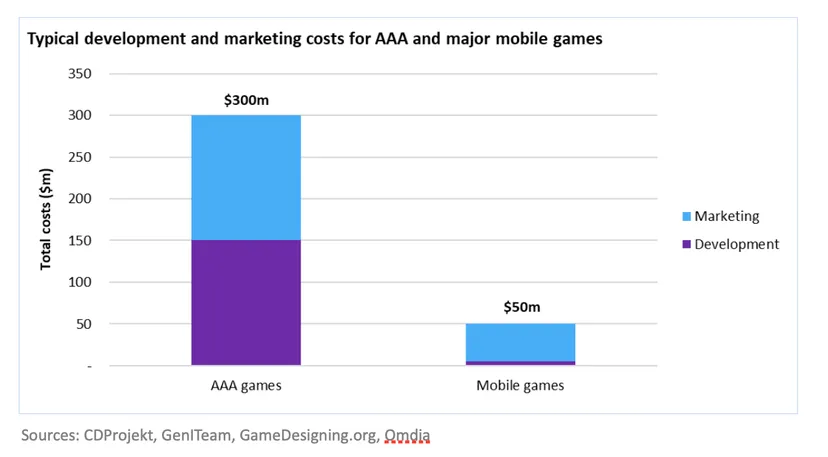
Why is games development so expensive?
A new report from Omdia highlights the reasons why development costs are skyrocketing.

In theory, it should be possible to simply stop chasing ever shinier graphics and bigger worlds, but the dynamics of the console market make it extremely difficult to break out of the graphical arms race.
Publishers must pay the platform holders 30% of their sales, but Sony and Microsoft themselves are not just exempt from this tax, but subsidized by it, giving them far greater financial wiggle room.
Moreover, developing impressive graphical showcases helps to sell their consoles, which in turn generates further revenue, fueling a virtuous cycle. Third-party publishers, on the other hand, do not benefit from any such positive feedback loop, but still cannot afford for their games to look dated compared to first-party output which sets the standard in the eyes of consumers.
Whilst this is not an especially lengthy or exhaustive answer to the question, it does outline the principle factors.
Costs of development ultimately transform to the product's SRP and its monetisation practices. So, if you have questioned the value for money you are getting from your games and are questioning their cost, this article is good reading to get a little insight into why games cost what they do.
What price are you comfortable paying for a newly-released videogame?
Are there exceptions to this? (ie: Your favourite IPs)
What suggestions do you have to lower game prices that would still allow a developer to meet current day expectations and still remain profitable?












